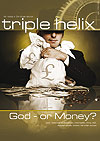Christian bioethics growever more complex as technologies develop and new issues emerge. AgnetaSutton has set out to make some of the themes more accessible. She takes a broad sweep, encompassing traditional challenges such as euthanasia and IVF, as well as more novel topics like our roleas guardians of creation and how we should treat animals, not addressed in other books.
The book is well referenced and draws widely on a variety of predominantly Catholic texts tosupport and explain her argument. However, this is perhaps a book for those who already have some knowledge of the discipline, rather than readers looking for an introduction. For example, on the beginning of life, Sutton starts from the premise that human life begins at the point of fertilisation. She thus seeks to critique arguments in favour of life beginning at another point in development, for example implantation. Sadly, arguments around life beginning at fertilisation are not considered in real depth.
This book sits alongside othersthat seek to make bioethics more accessible to a wider Christian readership, and its breadth in terms of subject material and external references is its mainstrength.
































